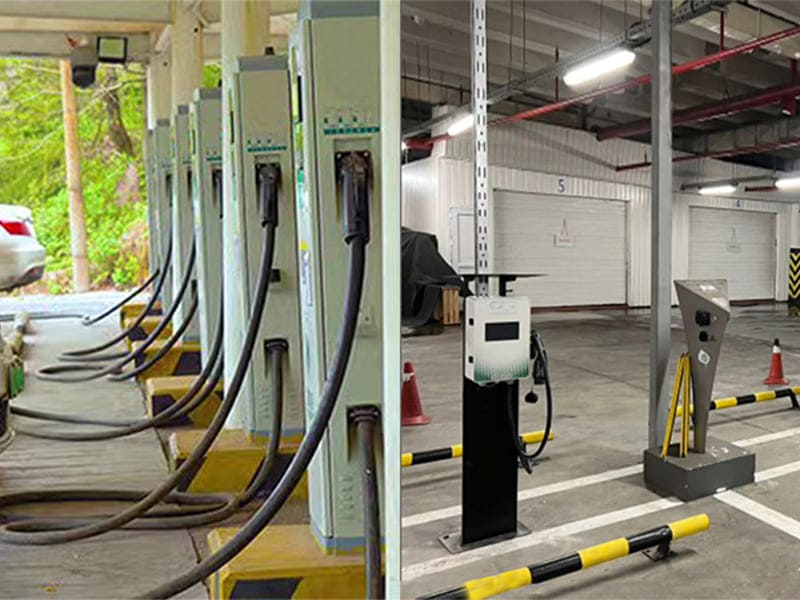Electrifying your fleet is a major decision. Choosing the right EV charger station for fleet is critical. This choice impacts your operations and budget significantly. This guide will help you navigate the selection process. It ensures you find the perfect charging solution.
1. Assess Your Fleet’s Daily Needs
Start by analyzing your vehicles’ daily mileage. Calculate total energy consumption requirements. This determines charging speed necessities. Understanding daily routes is essential. This data informs your charging infrastructure planning. It prevents under or over-investing in equipment.
2. Determine Necessary Charging Speeds
Level 2 AC EV chargers are common for fleets. They offer a good balance of cost and speed. DC EV fast charging station is crucial for rapid turnaround. It minimizes vehicle downtime effectively. Many depots use a combination of both. This mix supports various operational schedules.
3. Evaluate Electrical Capacity
Assess your facility’s available power supply. Upgrading electrical infrastructure can be costly. Consult with a qualified electrician early. They can identify potential power limitations. Sufficient capacity supports future expansion plans. This avoids expensive upgrades later.
4. Prioritize Scalability and Future Growth
Your charging needs will evolve over time. Choose a system that can grow with you. Modular EV charger station for fleet solutions are ideal. They allow you to add more stations later. Planning for expansion is a wise investment. It protects your long-term operational needs.
5. Focus on Robust Management Software
Fleet management software is indispensable. It monitors energy usage and costs efficiently. The software should schedule charging sessions smartly. It helps avoid peak electricity demand charges. Remote monitoring and control are vital features. Good software maximizes efficiency and savings.
6. Consider Total Cost of Ownership
Look beyond the initial purchase price. Consider installation costs and utility fees. Factor in ongoing maintenance expenses. Calculate potential energy savings over time. Rebates and incentives can offset costs. A comprehensive financial analysis is crucial.
7. Ensure Reliability and Durability
EV charger station for fleet must withstand heavy use. Choose equipment with proven reliability. Look for weatherproof and vandal-resistant designs. A strong warranty provides peace of mind. Reliability prevents costly operational disruptions. Durable hardware ensures a long service life.
8. Verify Connectivity and Compatibility
EV charger station for fleet must communicate with your management software. Open standards like OCPP are highly recommended. They prevent vendor lock-in issues. Ensure compatibility with your vehicle types. Seamless integration streamlines your operations. This is key for a smooth workflow.
9. Plan for Smart Charging Capabilities
Smart charging optimizes energy consumption. It automatically charges during off-peak hours. This significantly reduces electricity costs. It also manages power distribution effectively. Load balancing prevents circuit overloads. These features are essential for efficiency.
10. Explore Financing and Incentives
Many governments offer grants for electrification. Utilities may provide special EV charging rates. Investigate all available financial incentives. These can dramatically lower project costs. Leasing options can preserve capital. Smart financing makes projects more affordable.
Conclusion
Selecting the right EV charger station for fleet requires careful planning. Analyze your specific operational needs thoroughly. Choose scalable and manageable solutions. Prioritize reliability and total cost of ownership. Leverage available software and financial incentives. This strategic approach ensures a successful transition. Your fleet will be efficient and future-proof.
Understanding the financial operations of gas station EV charger stations will help you become more familiar with EV charger stations for fleet.

